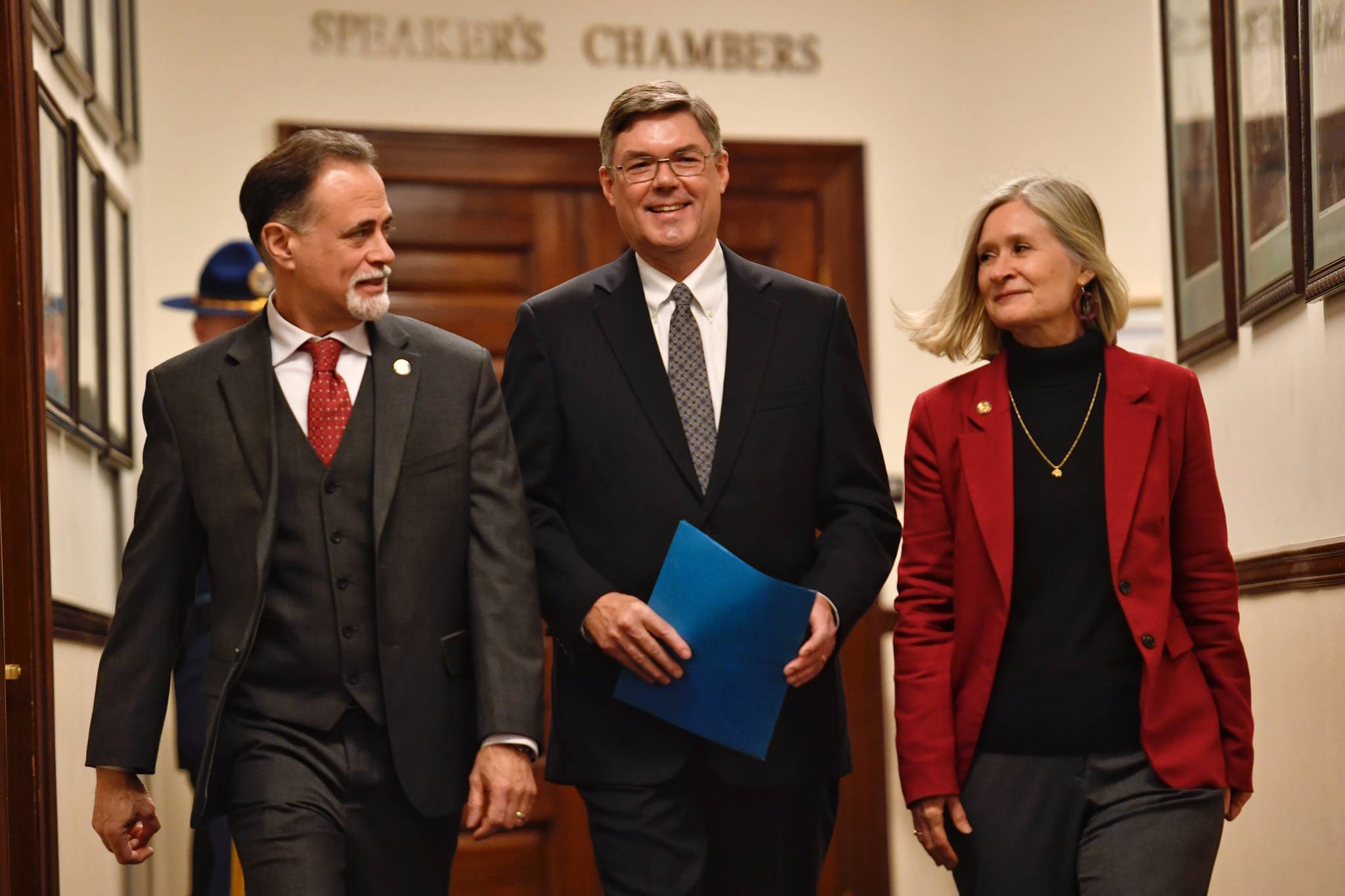Last year in Nome, a court employee clicked on an attachment in an email as they sifted through their inbox.
That attachment unleashed a virus into the court’s computer system and shut it down for six days, Alaska Courts System Deputy Director Doug Wooliver said.
“If it had been in Anchorage or Fairbanks,” Wooliver said, “it could have spread to the rest of the state.”
The hack was contained immediately and didn’t spread, Chief Justice Joel H. Bolger said in an interview Wednesday. Still, the situation was a scare to the court system, and Bolger mentioned
it Wednesday in his State of the Judiciary speech to a joint session of the Alaska House of Representatives and Senate.
Increasing cybersecurity is one facet of the court system becoming more technologically savvy, Bolger said in his 18-minute address. In an interview after the speech, Wooliver said the court system has included a little under $1 million for cybersecurity in its capital budget request.
Bolger detailed another technological endeavor that could help defendants. He said there are many people in Alaska who are not getting the legal representation they need, and that a simple and easy-to-understand online tool could help them.
This tool, called the Legal Navigator, is an online service that provides people with an interactive way to learn what their legal options are. The court system has been working with Legal Services Corporation, Pew Charitable Trusts and Microsoft (which built the tool), among other organizations to develop this, Bolger said.
He said it will be tested later this year before being openly available to the public.
“We hope that this tool will help regular people to overcome Alaska’s financial and geographical barriers to appropriate assistance,” Bolger said.
Reopening on Friday afternoons?
In recent years, the court system has cut costs in a variety of ways, Bolger said during his speech, from judges and employees taking time off without pay to the courts closing their doors for Friday afternoons.
At least one person would like to see the court stay open on Fridays — Gov. Mike Dunleavy. During his State of the State speech, Dunleavy said he hopes the Legislature approves funding for the courts to stay open all day on Friday so more cases can be prosecuted.
During his speech Wednesday, Bolger said the court system had actually already finished its budget request to the state — but that it hadn’t included a request for funding to keep courts open on Fridays. Wooliver, who puts together the court system’s budget requests along with the members of the Supreme Court, said they reconsidered their request after seeing Dunleavy’s State of the State speech.
Wooliver met with the Office of Management and Budget, he said, and found that OMB would be supportive of finding money in the budget to get the court system open for more days.
Wooliver said in a presentation to the Senate Finance Committee on Wednesday morning that opening courts on Friday afternoons would cost the state about $3.1 million.
“I believe the Legislature’s going to be supportive but we’ll see,” Wooliver said. “It’s up to them eventually, where they appropriate the money.”
Making judges more versatile
Bolger talked during his address about switching two District Court judgeships to Superior Court judgeships in Valdez and Homer. This might sound familiar to those in Juneau, as the court system switched one of Juneau’s District Court judge positions to a Supreme Court position last year.
This proposal, detailed in Senate Bill 41, is a bit different than the situation in Juneau last year, Bolger explained after his speech.
In both Valdez and Homer, there is only one judge, he said. District Court judges can’t handle all cases, but Superior Court judges can, he explained, and said during his speech that sometimes Superior Court judges have to be flown in to rural communities to adjudicate felonies.
The Legislature still has to approve the bill.
Switching these two judgeships to Superior Court positions would allow them to have “general jurisdiction,” Bolger explained in an interview, and would make them more versatile for these smaller communities.
“It only makes sense in a rural area to have a judge of general jurisdiction,” Bolger said, “and the reason it came up was that we have these two openings right now and we just as well take advantage of it to correct this mistake.”
• Contact reporter Alex McCarthy at 523-2271 or amccarthy@juneauempire.com. Follow him on Twitter at @akmccarthy.

